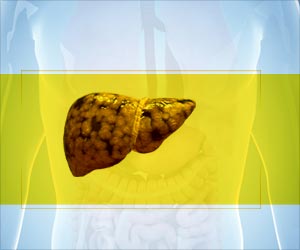rates have tripled since the 1980s, with a projected 1.1 million liver cancer deaths by 2030. About 30% to 40% of the patients in my outpatient department have liver problems. I treat approximately 30-35 people with liver ailments each month, ranging from 30-60 years old.
Liver diseases are generally caused by hepatitis viruses (A to E), alcohol, non-alcoholic fatty liver disease (NAFLD), drugs, autoimmune diseases, and genetic disordersand benign and malignant liver tumors. The main causes of these diseases stem from the consumption of large amounts of junk food, high-fat diets, and sugary drinks.
Advertisement
The incidence of alcoholic fatty liver disease (AFLD) is also increasing in India due to the steady rise alcohol consumption. AFLD develops when excess fat accumulates in the liver, leading to liver inflammation, scarring, and even liver failure.
Some people are more vulnerable to AFLD due to metabolic and genetic factors. Heavy drinkers are at the highest risk, while obese people or those with a high body mass index (BMI) are also susceptible. People with diabetes face a higher risk of AFLD, and conversely, people with AFLD have a higher risk of developing diabetes.
The risk also increases as one gets older. Malnourished people are more vulnerable to liver damage. Also, women are at higher risk of developing AFLD, since their bodies metabolize alcohol differently than men.
How to prevent alcoholic liver disease?
However, all of these are preventable and manageable with lifestyle modifications, hepatitis B vaccination, and early detection and treatment of hepatitis C. Liver transplantation also offers hope for people with early-stage liver disease. terminal.
Therefore, doctors suggest avoiding binge drinking, limiting alcohol intake, avoiding fatty, sugary, and salty foods, and eating a diet rich in fruits, vegetables, whole grains, and lean protein. They also recommended regular exercise, maintaining a healthy weight, and reducing stress.
One should take care of their liver by maintaining a healthy weight, eating a balanced diet that includes plenty of fruits, vegetables, whole grains, and lean proteins, limiting their alcohol intake to no more than two standard drinks per day, and avoiding exposure to harmful chemicals and pollutants. They can damage your liver.
Regular exercise is also very important to maintain a healthy weight and reduce the risk of developing other health problems that can contribute to AFLD. Stress can contribute to alcohol use, which can increase the risk of AFLD.
It is helpful to manage stress through activities such as yoga, meditation, or pranayama. Regular preventive medical checkups can help detect AFLD in its early stages. For patients with AFLD, medications may be prescribed to control symptoms and reduce the risk of liver damage. In severe cases, a liver transplant may be necessary.
Source: Medium
